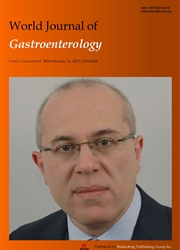

 中文摘要:
中文摘要:
瞄准:在信号变换器和抄写 3 的使活跃之物(STAT3 ) 上调查禁止的角色和 sorafenib 的内在的机制在 hepatocellular 癌(HCC ) 的活动。方法:人和老鼠 HCC 房间线与 sorafenib 被对待。增长和 STAT3 dephosphorylation 被估计。由 sorafenib 的 STAT3 小径抑制的潜在的分子的机制被评估。在 vivo antitumor,行动和 STAT3 抑制在一个免疫能力的 orthotopic 老鼠 HCC 模型被调查。结果:Sorafenib 减少了在酷氨酸和丝氨酸残余(Y705 和 S727 ) 的 STAT3 phosphorylation,但是没影响 Janus kinase 2 (JAK2 ) 并且磷酸酶防碎 2 (SHP2 ) ,它在 HCC 细胞与生长抑制被联系。S727 的 Dephosphorylation 与稀释细胞外的调整信号的 kinase (英皇家空军之阶级最低之兵) 被联系 phosphorylation,类似于激活 mitogen 的蛋白质 kinase (MEK ) 的效果禁止者 U0126,建议那 sorafenib 由禁止 MEK/ERK 发信号导致了 S727 dephosphorylation。同时, sorafenib 能也禁止 Akt phosphorylation,和 phosphatidylinositol-3-kinase (PI3K ) 禁止者 LY294002 和 Akt 击倒导致了 Y705 dephosphorylation,由 sorafenib 显示那 Y705 dephosphorylation 被禁止 PI3K/Akt 小径调停。在老鼠 HCC 模型,最后, sorafenib 显著地禁止了 STAT3 活动,减少肿瘤生长和转移。结论:Sorafenib 由堵住表明 JAK2 和 SHP2 激活的小径,而是独立人士的 MEK/ERK/STAT3 和 PI3K/Akt/STAT3 部分地禁止 HCC 的生长和转移。
 英文摘要:
英文摘要:
AIM: To investigate the inhibitory role and the underlying mechanisms of sorafenib on signal transducer and activator of transcription 3 (STAT3) activity in hepatocellular carcinoma (HCC).METHODS: Human and rat HCC cell lines were treated with sorafenib. Proliferation and STAT3 dephosphorylation were assessed. Potential molecular mechanisms of STAT3 pathway inhibition by sorafenib were evaluated. In vivo antitumor action and STAT3 inhibition were investigated in an immunocompetent orthotopic rat HCC model.RESULTS: Sorafenib decreased STAT3 phosphorylationat the tyrosine and serine residues (Y705 and S727), but did not affect Janus kinase 2 (JAK2) and phosphatase shatterproof 2 (SHP2), which is associated with growth inhibition in HCC cells. Dephosphorylation of S727 was associated with attenuated extracellular signal-regulated kinase (ERK) phosphorylation, similar to the effects of a mitogen-activated protein kinase (MEK) inhibitor U0126, suggesting that sorafenib induced S727 dephosphorylation by inhibiting MEK/ERK signaling. Meanwhile, sorafenib could also inhibit Akt phosphorylation, and both the phosphatidylinositol-3-kinase (PI3K) inhibitor LY294002 and Akt knockdown resulted in Y705 dephosphorylation, indicating that Y705 dephosphorylation by sorafenib was mediated by inhibiting the PI3K/Akt pathway. Finally, in the rat HCC model, sorafenib signifi cantly inhibited STAT3 activity, reducing tumor growth and metastasis.CONCLUSION: Sorafenib inhibits growth and metastasis of HCC in part by blocking the MEK/ERK/STAT3 and PI3K/Akt/STAT3 signaling pathways, but independent of JAK2 and SHP2 activation.
 同期刊论文项目
同期刊论文项目
 同项目期刊论文
同项目期刊论文
 An immune function assay predicts post-transplant recurrence in patients with hepatocellular carcino
An immune function assay predicts post-transplant recurrence in patients with hepatocellular carcino Genetic Variations in Plasma Circulating DNA of HBV-Related Hepatocellular Carcinoma Patients Predic
Genetic Variations in Plasma Circulating DNA of HBV-Related Hepatocellular Carcinoma Patients Predic IL-17 induces AKT-dependent IL-6/JAK2/STAT3 activation and tumor progression in hepatocellular carci
IL-17 induces AKT-dependent IL-6/JAK2/STAT3 activation and tumor progression in hepatocellular carci Prognostic Indicators for Tumor Recurrence after Liver Transplantation in Hepatocellular Carcinoma a
Prognostic Indicators for Tumor Recurrence after Liver Transplantation in Hepatocellular Carcinoma a Overexpression of CXCL5 mediates neutrophil infiltration and indicates poor prognosis for hepatocell
Overexpression of CXCL5 mediates neutrophil infiltration and indicates poor prognosis for hepatocell Low level of low-density lipoprotein receptor-related protein 1 predicts an unfavorable prognosis of
Low level of low-density lipoprotein receptor-related protein 1 predicts an unfavorable prognosis of Infiltrating Memory/Senescent T Cell Ratio Predicts Extrahepatic Metastasis of Hepatocellular Carcin
Infiltrating Memory/Senescent T Cell Ratio Predicts Extrahepatic Metastasis of Hepatocellular Carcin Intratumoral IL-17(+) Cells and Neutrophils show Strong Prognostic Significance in Intrahepatic Chol
Intratumoral IL-17(+) Cells and Neutrophils show Strong Prognostic Significance in Intrahepatic Chol Acetylcholinesterase, a Key Prognostic Predictor for Hepatocellular Carcinoma, Suppresses Cell Growt
Acetylcholinesterase, a Key Prognostic Predictor for Hepatocellular Carcinoma, Suppresses Cell Growt Prognostic significance and clinical relevance of Sprouty 2 protein expression in human hepatocellul
Prognostic significance and clinical relevance of Sprouty 2 protein expression in human hepatocellul Real-Time Monitoring of Rare Circulating Hepatocellular Carcinoma Cells in an Orthotopic Model by In
Real-Time Monitoring of Rare Circulating Hepatocellular Carcinoma Cells in an Orthotopic Model by In 期刊信息
期刊信息
